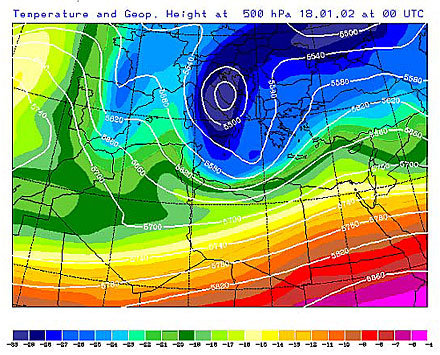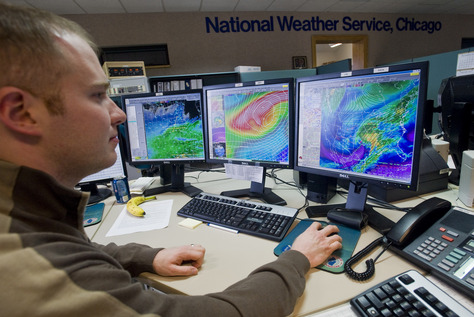Careers In Science: Meteorologist

What Does A Meteorologist Do?
Meteorologists study the relationships between atmospheric characteristics and the environment. They predict future weather conditions, study climate trends over time, track ozone levels, study rainfall and monitor global temperature. Meteorologists are needed in both urban and rural regions. Meteorologists, also called weather forecasters, study atmospheric processes and weather patterns. They use various tools like weather maps, satellites and technical instruments to analyze and predict the weather. Mathematically inclined individuals who are fascinated by thunderstorms or tornadoes may be suited for careers in meteorology.
What Are The Duties Of A Meteorologist?
A meteorologist’s work falls into the two main categories of forecasting and research.
In weather forecasting, common tasks include:
• Collecting data from satellite images, radar, remote sensors and weather stations all over the world;
• Measuring factors such as air pressure, temperature and humidity at various atmospheric levels;
• Analysing and presenting this information to customers in the form of weather briefings;
• Coding weather reports for transmission over international networks;
• Applying physical and mathematical relationships and sophisticated computer models to make short and long-range weather forecasts;
• Liaising with colleagues and clients from around the country and worldwide
In research, work that may be carried out includes:
• Investigating subjects such as airflow in the lowest kilometre of the atmosphere, the physics of clouds and precipitation, or global climate change;
• Developing and improving numerical and computer models to predict atmospheric processes and improve the accuracy of forecasts;
• Monitoring climate variability and change;
• Researching seasonal forecasting, ocean forecasting and climate prediction;
• Monitoring and investigating changes in the stratosphere (10-50km above the earth), including the ozone layer;
• Applying the results of research in order, for example, to give flood warnings or estimate the likely effects of global warming
How Much Does A Meteorologist Get Paid?
Experienced meteorologists can expect to earn salaries in the range of £25,000 (R353 921.91) to £35,000 (R495490.68). Salaries for meteorologists in the academic sector are usually on university postdoctoral research scales. Salaries for meteorologists in other organisations vary.
Education And Training Requirements?
Meteorologists need at least a bachelor’s degree to find a job, but most research positions require a master’s degree or doctorate. Students will need to take courses in physics, statistics, chemistry, weather systems, calculus and physical climatology among others. A bachelor’s degree is usually awarded after four years of study, and a master’s or doctorate takes between two and four additional years to obtain.
Skills And Personal Traits Of A Meteorologist
Meteorologists need strong math and science skills and should be knowledgeable about research methods. They also need to be able to understand and analyze large amounts of data. Students looking to use their meteorology background to enter broadcasting will also need basic journalism knowledge.





